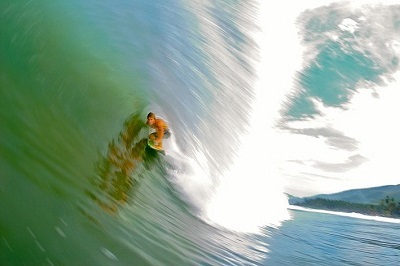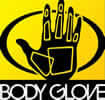Peniche surf time means supertube surf time
Peniche surf is synonym with Supertubos, an iconic surf spot in Peniche that obviously means supertubes. If you come to enjoy some Peniche surf time, you really should know that when Supertubos gets going, it really gets going, and when it does, you're probably at the best beach break spot in the whole country.
The trade off is that at times like these, only really experienced surfers should attempt to face the swell. Be prepared for a lot of wiping out, because it will happen.
If you haven't yet experienced it yourself, a wipe out is when you are most vulnerable to suffering injury or at the very least some serious discomfort, if you land hard in the water, hit the bottom, get held down for long or get hit by your board and all of this makes it really important for you to know how to properly fall off your board during a wipe out. So, should you not be yet at that point when you wipe out like a pro, here are some pointers.

Wipe out without getting wiped out
One of the most important things during a wipe out is to maintain knowledge of where your board is at all times, because you have a good chance of getting hit by it. Not only are the fins sharp, tips are really painful when they hit you out of pure kinetic force.
Next comes the need to know what the bottom is made of. If it's a sandy bottom, you'll probably do just fine and can push yourself from off of it, but if there are rocks, beware so you don't cut or bruise yourself seriously.
1 - Wiping out:
So, if you are going to wipe out, don't just fall off. Try to jump off or push your board away from you to diminish the risk of impact, but when you do jump off, do so towards the wave, trying never to have your board between you and the wave because it will get pushed against you.
Also, regardless if you fall or jump off, try to go with your back first. Not only does it allow you to keep more aware of your board and the surroundings, keeping your legs curled reduces the chances of sprains and if you happen to hit something on the bottom, it's better to hit it with your buttocks than your head. And this means that while it may appear counter productive, the last thing you want to do is go in head first, because you may hit the water hard, sprain your neck or even worse, get knocked out upon hitting the floor.
During the fall, your head is your #1 priority to protect. Even a broken arm will be better than getting hit by your board and blacking out, so keep your arms ready to be used as a shielding to your most vulnerable areas.
2 - Recovering:
Once you're in the water, remember the bottom is not always very deep, so act like you might hit it at any time to avoid injury and don't try to dive too deep right away. Keep your eyes open at all times to make sure you know where you are and keep calm. The waves can hold you down for a seemingly endless time, but don't try to swim back up in a haste without knowing your whereabouts or you risk hitting your floating board hard, or getting hit by someone else.
Again, your #1 priority to protect is your head, so when going back up get your arms up there first.
Now that you're on the surface, get back on your board as soon as possible, because unless you control it, you may find yourself tossed around by the leash, or the currents will turn into an obstacle for everyone else, risking collisions with dire consequences. Just swim towards it or reel it in by the leash and get on it and paddle away from the danger zone.
Last but not least, evaluate the condition you're in and if there are no dents or broken pieces, get back on your feet and surf on. But always be careful, as your safety comes first.



